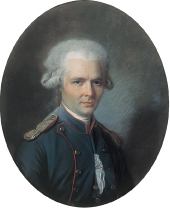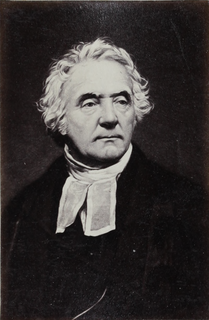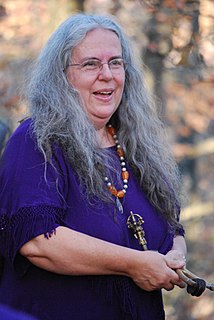A Quote by Joseph Addison
A religious hope does not only bear up the mind under her sufferings but makes her rejoice in them.
Related Quotes
I could distinguish the shape of her bosom, her arms, her thighs, just as I remember them now, just as now, when the Moon has become that flat, remote circle, I still look for her as soon as the first sliver appears in the sky, and the more it waxes, the more clearly I imagine I can see her, her or something of her, but only her, in a hundred, a thousand different vistas, she who makes the Moon the Moon and, whenever she is full, sets the dogs to howling all night long, and me with them.
I shall possess this woman; I shall steal her from the husband who profanes her: I will even dare ravish her from the God whom she adores. What delight, to be in turns the object and the victor of her remorse! Far be it from me to destroy the prejudices which sway her mind! They will add to my happiness and my triumph. Let her believe in virtue, and sacrifice it to me; let the idea of falling terrify her, without preventing her fall; and may she, shaken by a thousand terrors, forget them, vanquish them only in my arms.
Christianity only hopes. It has hung its harp on the willows, and cannot sing a song in a strange land. It has dreamed a sad dream, and does not yet welcome the morning with joy. The mother tells her falsehoods to her child, but, thank heaven, the child does not grow up in its parent's shadow. Our mother's faith has not grown with her experience. Her experience has been too much for her. The lesson of life was too hard for her to learn.
Marisa! Marisa!” The cry was torn from Lord Asriel, and with the snow leopard beside her, with a roaring in her ears, Lyra’s mother stood and found her footing and leapt with all her heart, to hurl herself against the angel and her daemon and her dying lover, and seize those beating wings, and bear them all down together into the abyss.
I shouldn't care what you suffered. I care nothing for your sufferings. Why shouldn't you suffer? I do! Will you forget me? Will you be happy when I am in the earth? Will you say twenty years hence, "That's the grave of Catherine Earnshaw? I loved her long ago, and was wretched to lose her; but it is past. I've loved many others since: my children are dearer to me than she was; and, at death, I shall not rejoice that I am going to her: I shall be sorry that I must leave them!" Will you say so, Heathcliff?
The brute animals have all the same sensations of pain as human beings, and consequently endure as much pain when their body is hurt; but in their case the cruelty of torment is greater, because they have no mind to bear them up against their sufferings, and no hope to look forward to when enduring the last extreme pain.
But will I always love her? Does my love for her reside in my head or my heart? The scientist in her believed that emotion resulted from complex limbic brain circuitry that was for her, at this very moment, trapped in the trenches of a battle in which there would be no survivors. The mother in her believed that the love she hadd for her daughter was safe from the mayhem in her mind, because it lived in her heart.
The apartment was entirely, was only, for her: a wall of books, both read and unread, all of them dear to her not only in themselves, their tender spines, but in the moments or periods they evoked… Her self, then, was represented in her books; her times in her records; and the rest of the room she thought of as a pure, blank slate.
She looked up at him and her face was pale and austere in the uplight and her eyes lost in their darkly shadowed hollows save only for the glint of them and he could see her throat move in the light and he saw in her face and in her figure something he'd not seen before and the name of that thing was sorrow.
I think that one morning, the Papess woke in her tower, and her blankets were so warm, and the sun was so golden, she could not bear it. I think she woke, and dressed, and washed her face in cold water, and rubbed her shaven head. I think she walked among her sisters, and for the first time saw that they were so beautiful, and she loved them. I think she woke up one morning of all her mornings, and found that her heart was as white as a silkworm, and the sun was clear as glass on her brow, and she believed then that she could live, and hold peace in her hand like a pearl.






































